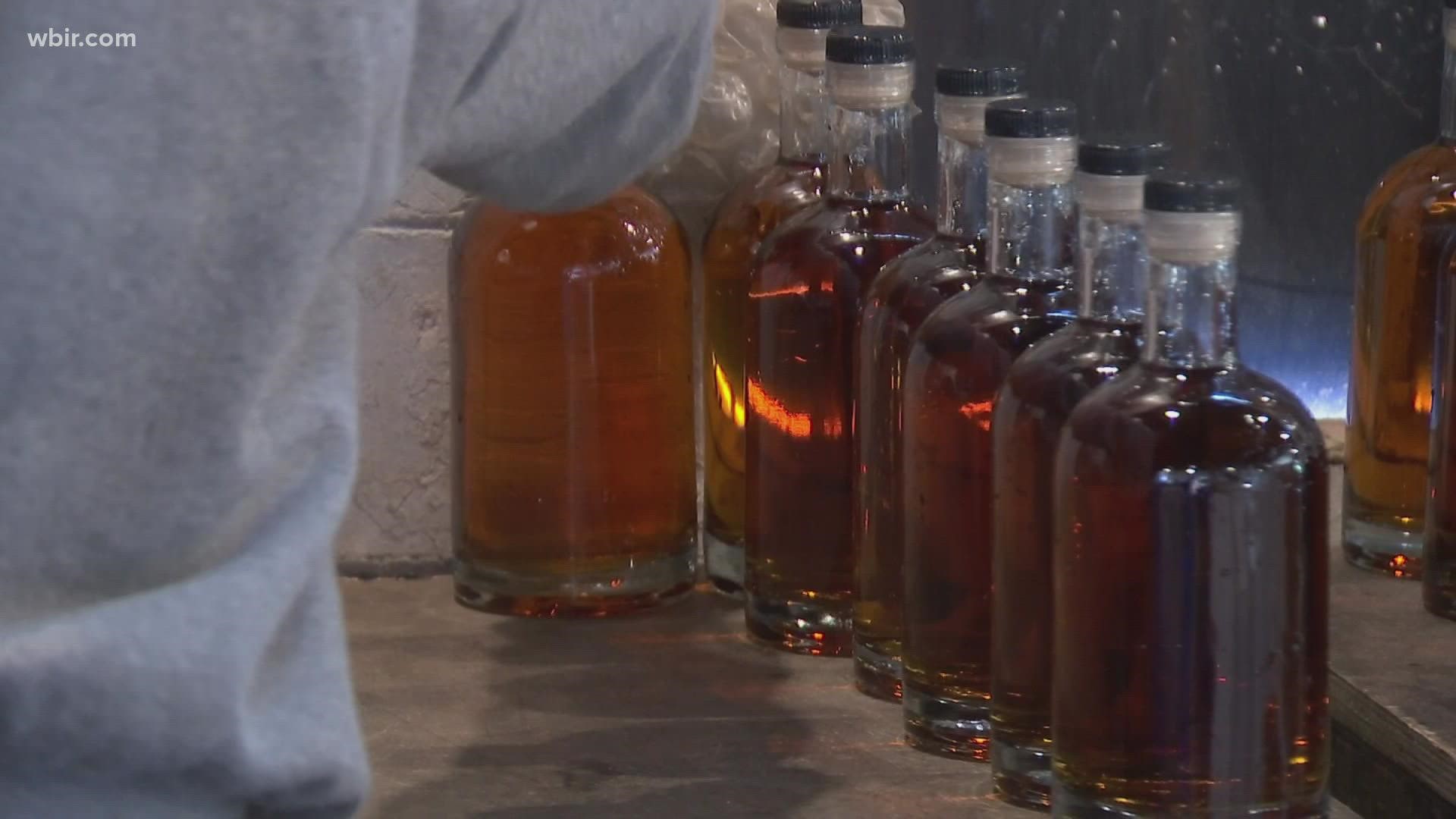LEXINGTON, Ky. — The analogy made so much sense, and couldn’t have been more complimentary of Kentucky’s thriving bourbon industry.
“This has been like the ‘napafication’ of Kentucky,” said Eric Gregory from the Kentucky Distillers Association. He's referring to the Kentucky Bourbon Trail, which in the last decade has drawn a comparison to California’s Napa Valley wine country.
“They’ve been at it for 50-70 years, where tourism has been boosted by the wine industry, but one person called us the Sonoma of the South, which we took as a compliment,” Gregory said.
Mr. Gregory and hundreds more leaders in the bourbon industry were in Lexington, Kentucky for their annual three-day Jim B. Beam Institute conference. Here, discussion and panel groups talk about what’s been working, and some of the challenges they face now and will see in the future.
“We make barrels out of wood and steel, and until recently, steel was kind of supply-constrained, so we fought hard and stayed ahead of it, but it was unlike anything I’ve seen in my life,” said Brad Boswell, who runs Independent Stave Corporation of Missouri.
They proved many of the barrels in which the bourbon is aged. His is just one supply chain issue the industry has been seeing as a result of the pandemic.
“If you’re looking for a bottle of bourbon that comes in a unique, or out of the ordinary glass then chances are you aren’t going to find it, or it’ll be a few months before you can find it because we can’t get the glass due to supply chain issues,” Gregory explained.
Governor Andy Beshear spoke at Monday morning’s welcoming ceremony to thank those in attendance for their continued investment in making Kentucky bourbon the world’s best while making the bourbon trail a destination spot for so many visitors. He attributed much of the industry’s success to the generational nature of the bourbon business; from the farming process of its ingredients to the distilleries that age and bottle the product once it’s ready.
And while the industry leaders here confer on ideas to make things better, and how to stem continued economic challenges, there is one thing we learned about that bottle you buy today: It’s probably not costing you much more than it did before our inflation rate began to soar.
“Today’s bourbon that’s been bottled was barreled 6-8-10-12 years ago, so it’s going to see supply chain impact as part as pricing is concerned,” Gregory noted.
“We’ll know in about eight years,” he continued when asked if the problems from today will become the pricing problem of tomorrow.

